Graham Reid | | 6 min read
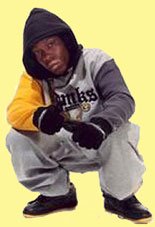
Dizzee Rascal (aka Dylan Mills), out of London's tough East End, crashed into view with his terrific Boy in Da Corner debut album last year. It made "best of the year" lists everywhere for its compelling stories of real life which, like The Streets, weren't afraid to be heartfelt and emotional when necessary, but without losing the tough edge.
What makes Dizzee Rascal extraordinary is his youth. He was 16 and skipping school when he wrote, with Jeanine Jacques, I Luv You (a swaggering, sparring piece about teen pregnancy), and the album appeared when he was 18.
It came from the garage scene but had touchstones in dance, sampled Billy Squier's hard rock hit The Big Beat for the tough Fix Up, Look Smart, and when the Observer compiled its 100 greatest British albums last month Boy in Da Corner was there.
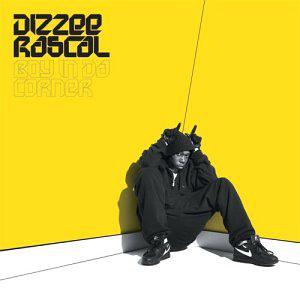 It was the most recent album on the list, with writer Ben Thompson saying it had "already acquired the set-in-stone feel of similarly epoch-making debuts by the Specials or Soul to Soul".
It was the most recent album on the list, with writer Ben Thompson saying it had "already acquired the set-in-stone feel of similarly epoch-making debuts by the Specials or Soul to Soul".
What he does is being called grime garage, but it's also street-smart rap over cheap, but addictive, production. It's very, very good.
When The Streets' Mike Skinner was asked, "What's the future?" he replied with two words, "Dizzee Rascal".
Nice to finally catch you, I tried to get you in Denmark and Norway a week ago and then you were off to the States again. You're getting around quite a bit.
Yeah, we doin' a lot of travelling and it's quite hectic. The shows is all good man, and we selling out so I'm well pleased with that.
Who goes out with you, what sort of line-up will you bring to New Zealand this week?
What's important is I have a good interaction with the crowd so it's just going to be me and a DJ. That's all good. I think a lot of rap shows are disappointing but I normally sound as good live as I do on the record. I do a lot of live stuff off the crowd. It's going to be harder, just me and the DJ, but it's good.
In New Zealand we get where you're coming from because we're familiar with all aspects of English culture, but how does this go over in Scandinavia?
Yeah, I think they are really into hip-hop, especially in Sweden. And Norway went really well. They are some of the most receptive crowds I've had around the world.
Mike Skinner says it's still difficult in the States because there is that big cultural difference. How many times have you been there?
Quite a few times, actually. Miami and Texas, done LA twice, San Francisco, New York three times, Boston, Philly and Washington ...
Oh, you've been around. Do you get the impression they are understanding better what you are doing?
Yeah, they don't always understand what I'm saying because I rap faster and then there's the accent 'n' that. But by the end they are happy. I don't know, I think they get it - to an extent. With me and The Streets, people just enjoy it.
It must be useful that there are a few like yourself, Mike and Wylie coming out at the same time so people in different countries can see there might be a whole thing worth investigating rather than just hearing someone in isolation.
Yeah, definitely, although we come at it from different angles. But that helps because it adds even more variety and they get a wider perspective of what's going on.
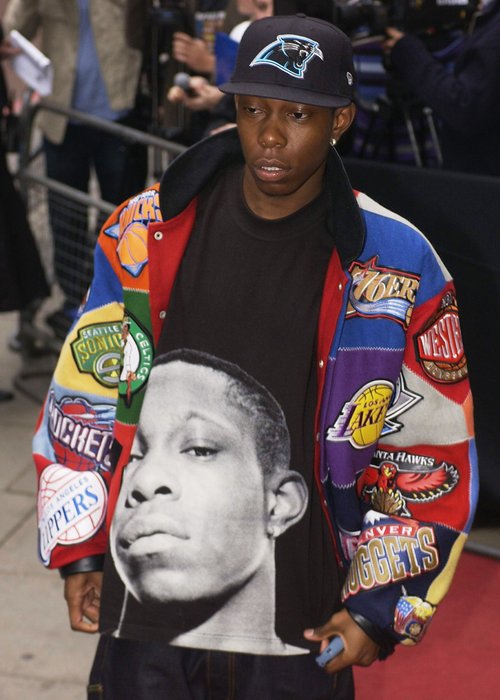 One of the things big in the States is the aspirational, bling-bling thing, which you don't do. You were on a bill with American rappers at the South by Southwest festival in Austin, Texas this year. What did those guys say to you about your very different observations of life?
One of the things big in the States is the aspirational, bling-bling thing, which you don't do. You were on a bill with American rappers at the South by Southwest festival in Austin, Texas this year. What did those guys say to you about your very different observations of life?
I got on well with Bun. B and that's good for me because he's a rapper from a group I've looked up to for a while, UGK [a gangsta rap outfit from Houston]. That was positive, and it was good for me to see them live because it was interesting.
You still live in your old neighbourhood?
Not the same, but the same side of London.
Is that important, because it's where your inspiration came from presumably?
Not necessarily, it's just where I've grown up. It's second nature to me, anything else I'll be learning along the way, anywhere I travel. I get inspiration from life in general. I make music and don't feel any obligation to be anywhere. I'll be me.
That sounds good, because some people from certain musical cultures feel they can't leave. They fear they will either betray that audience or place, or they'll lose touch with what made them distinctive in the first place.
It's more like growing up in a place and having to shift all of a sudden and being known by everyone. I don't think it's got anything to do with musical culture. It seems like that sometimes, and they make it out like that if you take it at face value. But someone could get a job in an IT firm and they have to move home and go to another state or something. They are scared of losing touch with their surroundings. But they'll still take the job because they need to, innit?
Your life has changed considerably. Do you get recognised when you walk down the street?
Yeah I do, more and more. I don't always like that. Some people are cool and some ain't. The volume of people that recognise you is something you try and learn to come to grips with.
What good things do people say?
Sometimes it's like, 'I heard your album and like what you're doing' and I'll embrace that and I'll tell them the second album is coming and blah-blah-blah, and I'm off, you know? I try to see people like they is just people, innit?
And negative comments?
It don't happen much to my face. It's normally bullshit on the phone from someone saying, 'Everyone ain't happy for you'. But I don't care.
You mentioned a new album?
Yeah, it's finished and it arrives in September. It's called Showtime. It's a real progression and people who've heard it have been real positive. It's just me going all out to show what I'm really capable of a year on.
In what way?
Vocally, sonically and the way things are produced. I think people thought everything had been said and been done on Boy in Da Corner and I was drawing from a whole lifetime of experience, so how could I come with something else? But the second one is showing it wasn't a fluke - and that I know what I'm doing with my music. It's more produced and a bigger and stronger album, a real progression. The first single is Stand Up Tall and has got a garage tempo but an electro feel to it. It's a really bumpy, happy tune for the summertime.
Good. The weather's lousy here so we could do with something summery.
Okay. I be bringin' it to ya.


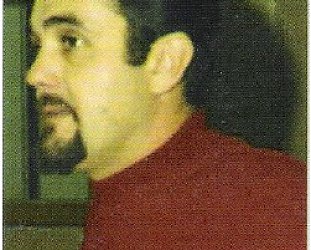
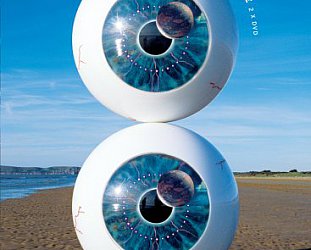

post a comment